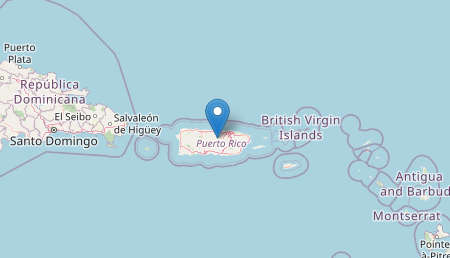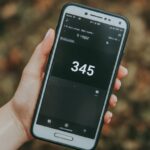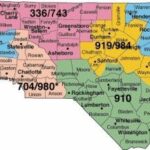Area code 939 is a telephone area code that serves the entire U.S. territory of Puerto Rico, making it an overlay code for the previously established 787 area code. Since its activation in 2001, the 939 area code has been used alongside 787 for all new telephone numbers across the island, requiring 10-digit dialing (area code + 7-digit number) for all calls within Puerto Rico.
The user’s intent is to find the geographic location and key details of the area code 939, as well as any associated scam risks, since many calls from Caribbean and non-domestic U.S. codes are often viewed with suspicion.

Location and Details of Area Code 939
Area code 939 is a mandatory part of the dialing sequence for all new phone numbers in Puerto Rico and covers the same vast geographic area as the 787 area code.
Geographic and Time Zone Information
| Detail | Description |
| Location | Puerto Rico (Unincorporated U.S. Territory) |
| Type | Overlay for the 787 area code. |
| Major Cities Covered | San Juan, Bayamón, Carolina, Ponce, Caguas, Arecibo, Mayagüez, and all other municipalities. |
| Time Zone | Atlantic Standard Time (AST), which is UTC-4. |
| Daylight Saving Time | Puerto Rico does NOT observe Daylight Saving Time (DST). The time remains constant throughout the year. |
| Dialing | All calls within Puerto Rico require 10 digits (939 or 787 + 7-digit number). |
Note on Time Zone: Because Puerto Rico remains on AST year-round, the time difference relative to the U.S. East Coast changes seasonally. When New York is on Eastern Daylight Time (EDT), Puerto Rico (AST) is one hour ahead. When New York returns to Eastern Standard Time (EST), they are on the same time.
Scam and Fraud Risks Associated with Area Code 939
While the area code 939 is completely legitimate and a necessary part of the Puerto Rican numbering system, it is, unfortunately, sometimes exploited by scammers targeting U.S. and Canadian consumers.
- Phishing Scams (Texts and Calls)
Scammers frequently use numbers from the 939 area code to send mass phishing text messages or make automated calls.
- The Tactic: Scammers try to trick recipients into believing they have a notification about a package delivery issue, an outstanding toll balance (like E-ZPass), or a suspicious bank charge.
- The Goal: To get the recipient to click a malicious link (often shortened) or respond to the text, confirming the number is active and making them a target for future, more sophisticated fraud.
- Virtual Kidnapping and Extortion Scams
The 787/939 area codes have been specifically identified in reports related to “virtual kidnapping” scams.
- The Tactic: A scammer calls and claims a family member has been kidnapped, injured in an accident, or is in some other form of severe distress. They may try to spoof a screaming voice in the background or claim to be a member of law enforcement.
- The Goal: To coerce the victim into immediately wiring large sums of money, typically via transfer services or gift cards, to secure the relative’s release. Callers will go to great lengths to keep the victim on the line, preventing them from verifying the loved one’s location.
Crucial Warning: Law enforcement and federal agencies will never call demanding immediate payment via gift cards or wire transfers to avoid arrest or criminal charges.
How to Handle Calls and Texts from Area Code 939
If you do not personally know anyone in Puerto Rico, use the following tech support and security steps when dealing with unknown numbers from the 939 area code:
- Do Not Engage with Texts: If you receive a text from a 939 number you don’t recognize, do not reply. Replying confirms your number is active and encourages more spam. Block the number and delete the message immediately.
- Hang Up on Suspicious Calls: If a caller from 939 makes urgent demands for money, gift cards, or personal information, hang up immediately.
- Verify Family Safety: If a call involves a threat or claim of family distress, do not hang up on the scammer but immediately try to contact the alleged victim using a number you know is legitimate (e.g., their known cell phone number) from a second phone. This is the only way to quickly confirm their safety.
- Block the Number: Use your mobile phone’s built-in tools (or your carrier’s app) to block the incoming number.
- Report the Scam: File a complaint with the Federal Trade Commission (FTC) to help authorities track and stop the fraudulent activities.
Frequently Asked Questions
Is the 939 area code domestic or international?
The 939 area code is considered domestic within the North American Numbering Plan (NANP), as Puerto Rico is a U.S. territory. However, your mobile or landline plan may still treat calls to Puerto Rico as a long-distance call, depending on your carrier’s specific policy. Always confirm your carrier’s rates.
How is 939 different from the 787 area code?
Area codes 939 and 787 are overlay codes, meaning they serve the exact same geographical region—all of Puerto Rico. The 939 code was introduced in 2001 when the existing 787 numbers began to run out. Because of this overlay, you must always dial 10 digits (the area code + the 7-digit number) even for local calls within Puerto Rico.
Does Puerto Rico use 7-digit or 10-digit dialing?
Puerto Rico uses 10-digit dialing (Area Code + 7-digit number) for all calls, including local calls made within the island. This change became necessary after the introduction of the 939 overlay area code.


